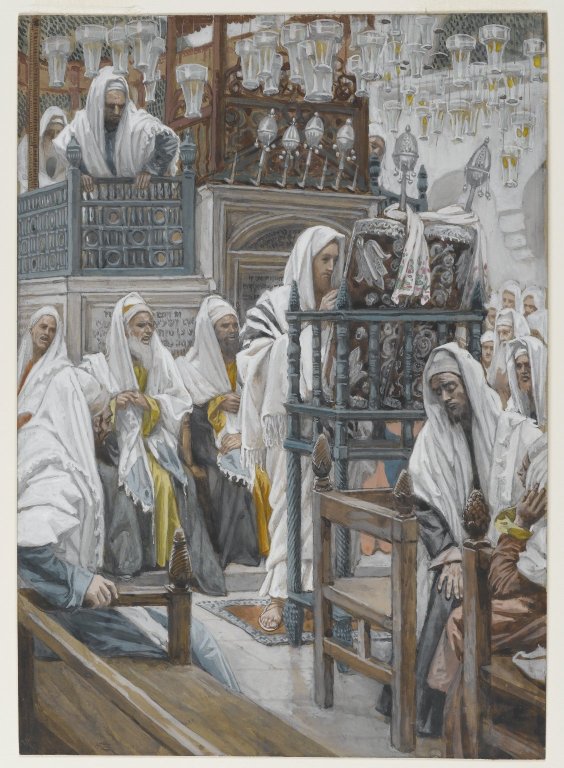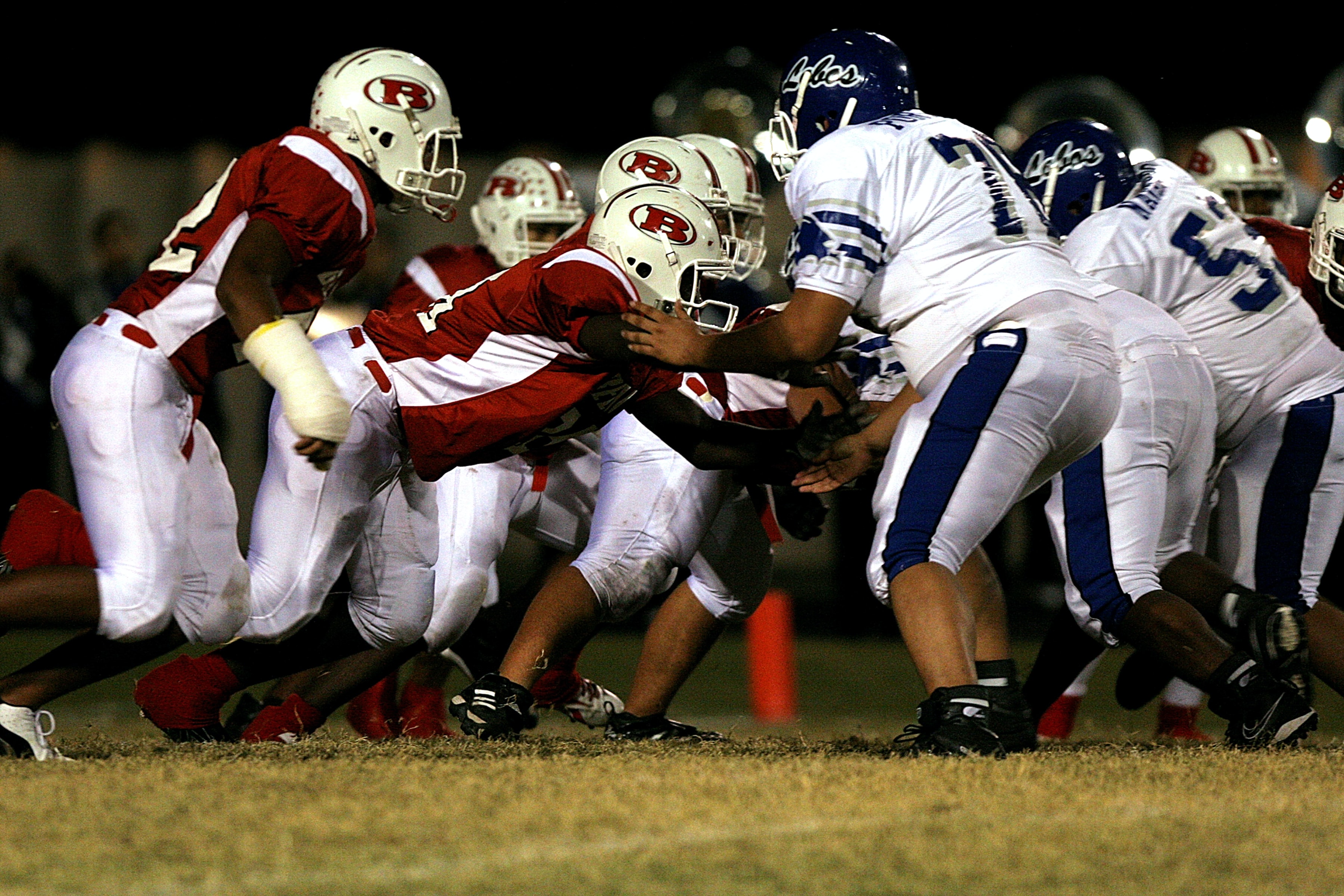The Need for Church-Building Teachers in the ICOC
David Pocta
14 And Jesus returned in the power of the Spirit to Galilee, and a report about him went out through all the surrounding country. 15 And he taught in their synagogues, being glorified by all. 16 And he came to Nazareth, where he had been brought up. And as was his custom, he went to the synagogue on the Sabbath day, and he stood up to read. 17 And the scroll of the prophet Isaiah was given to him. He unrolled the scroll and found the place where it was written,
18 “The Spirit of the Lord is upon me, because he has anointed me to proclaim good news to the poor. He has sent me to proclaim liberty to the captives and recovering of sight to the blind, to set at liberty those who are oppressed, 19 to proclaim the year of the Lord’s favor.”
20 And he rolled up the scroll and gave it back to the attendant and sat down. And the eyes of all in the synagogue were fixed on him. 21 And he began to say to them, “Today this Scripture has been fulfilled in your hearing.” 22 And all spoke well of him and marveled at the gracious words that were coming from his mouth. Luke 4:14–22 (ESV)

Jesus taught a lot. His teaching spread by word of mouth. He used concepts and texts with which people were familiar (stories, metaphors, parables, and in this case the Hebrew Scriptures) to bring about a clearer understanding of the Kingdom. He taught and modeled, taught and modeled, taught and modeled.
1 The clear goal of Jesus’ teaching was to bring good news, healing, and salvation to a broken world. Human beings universally suffer from prolonged immaturity, personal enslavement, and oppression; both inflicted by others and self-inflicted. Jesus offered hope. His teaching continues to offer profound and meaningful hope today.
Jesus’ teaching also moved people from a rigid view of the Law to spiritual depths of an embodied discipleship (Mt 5:48, 23:23-24). He offered a vision of freedom and maturity beyond legalism and literalism that could best be captured in parables, metaphors and illustrations. His teachings are both simple and complex, straightforward and worthy of rigorous reflection and contemplation.
__________________________
1 A search of the term “kingdom” in the gospels reveals this to be the primary focus of Jesus’ teaching. He strove to clarify and expand the people’s understanding of the work that God had sent him to do (Jn 8:28), and the work that the Holy Spirit would do (Jn 14:26).
12 May 2021
Paul continued Jesus’ ministry by teaching and modeling, teaching and modeling. He toiled to present everyone fully mature in Christ (Col 1:28-29) so that God’s people were equipped for works of ministry, unified in the faith, and had attained the whole measure of the fullness of Christ (Eph 4:12-16). Paul also recognized the diverse gifts that were needed to achieve such a lofty ambition. In Paul’s own words, this team effort required “the apostles, the prophets, the evangelists, the shepherds and teachers.” (Eph 4:11). Whereas Jesus embodied each of these gifts personally, the church would need to have these gifts represented in various roles after him as no one person embodies all of these gifts.
Some simple definitions from Ephesians 4:11 might assist this discussion 2.
Apostles and prophets3 – those messengers who have gone before us and left us the Scriptures
Evangelists – those who plant churches and publicly proclaim the gospel to the lost
Shepherds – those who tend the flock
Teachers – those who teach disciples to know and love God while maturing in the faith4
These roles are intended to work together. There is overlap in their mission. Lacking any one particular element of this team will have consequences. Taking a somewhat reactive position to the dominance of the elders in Church of Christ leadership in the 1980s (along with a general lack of evangelistic focus), the ICOC promoted the role of evangelist, even to the point of calling the role a “lead evangelist.” The prominence of this position has created a significant imbalance with other gifts. This was collectively addressed in the 2000s by appointing more shepherds. Today, a lack of teachers has hindered our maturity and depth. In order for the ICOC to attain the whole measure of the fullness of Christ, we need each of these roles fulfilled. Without a healthy balance, we will not see God’s people equipped for works of service and unified in the faith.
In 2003 and the immediate years following, the ICOC considered the effects of not having a strong presence of shepherds to work alongside the evangelists. Efforts were made around the world to right-size the imbalance. It seems that both the historic memory of shepherds in the Churches of Christ, and those earlier ICOC churches who did have shepherds (Boston, Chicago, San Diego), assisted in shaping a healthier understanding of how shepherds and evangelists could work together to build up the body of Christ. Over the next several years, shepherds were appointed in many congregations. Fortunately, it would now seem incomplete to have a large congregation in the ICOC without shepherds. We have come to value their gifts and the role that they play.5
___________________________
2 These roles are only a beginning of those who need to be recognized for their gifts and contributions. Beyond this we should be discussing deacons, women, cultural perspectives and more. 3 An argument could be made that prophets remain. This paper is addressing recognized roles in the ICOC. 4 There are some that hold the shepherd-teacher to be one role instead of two separate roles. Our concern should lie with the function of these gifts more than fixed offices. If our shepherds are trained and competent teachers, amen! In most situations this is not the case. 5 It should be noted that many of our churches, especially in the developing or majority world, still do not have shepherds. We still have much work to do.
12 May 2021
We stand at another important crossroads in our fellowship today. In most cases, we have yet to embrace and incorporate the role of teacher into our ecclesial teams. For years, we took pride in being “unschooled ordinary men.” Jesus did and still does work through fishermen and tax collectors. But let us remember the whole story. Jesus’ use of Scripture amazed the Jews (Jn 7:15). The disciples sat at Jesus’ feet (the master rabbi) for three years. Paul was an expert in the Law (arguably the equivalent of a modern-day PhD scholar of the Hebrew canon) and wrote a quarter of the New Testament. Luke also wrote a quarter of the New Testament and was known to be highly educated. God works through all kinds of people. He continues to work through the unschooled, but we also need those who are thoroughly trained in the law of our ancestors (Acts 22:3).
The devastating side of our immaturity and lack of teaching and shepherding is most vividly reflected in the number of Christians that have walked away from our fellowship. The staggering numbers that left the ICOC in the 1990s could easily make this case. Between 1979 and 2002, the ICOC baptized 422,069 people and 315,770 left during that same period which is 75% of the baptisms.6 How many of those who left could have been rescued with better teaching and shepherding to help these young Christians “build their houses on the rock” (Mt 7:24-27)? Even if we prevented one out of every three from leaving our fellowship, we would have had twice the size of membership; 270,146 instead of 135,073 members in 2002. Some may argue that we are in much better shape since 2002. Unfortunately, that is not the case. In 2020, the ICOC globally baptized 6638 and 4205 walked away. Sixty-three percent of the number of baptisms left the ICOC last year. While it is true that not all people leave the church because of a lack of teaching, many do. In his book, Finding Faith, Losing Faith, Dr. Scot McKnight states, “The fundamental crisis of those who leave the faith revolves around intellectual incoherence.”7 In other words, many leave the church because they begin to question their faith and often do not have the tools, resources, and a safe environment to process their doubts.
Consider Matthew 9:36-38 (ESV)
36 When he saw the crowds, he had compassion for them, because they were harassed and helpless, like sheep without a shepherd. 37 Then he said to his disciples, “The harvest is plentiful, but the laborers are few; 38 therefore pray earnestly to the Lord of the harvest to send out laborers into his harvest.”
Are we to understand this passage to only be addressing conversion? Don’t disciples of Jesus need much more attention after they are baptized to live out a vibrant discipleship? McKnight says in his poignant book on church culture, “Because there are so many wounded, Jesus says,
________________________
6 Andrew C. Fleming, “Let Each One be Careful How He Builds: A Study of the Statistical Narrative of the International Churches of Christ (ICOC) - the Initial Growth Phase.” (2018): 5. www.icochistory.org. 7 Scot McKnight and Hauna Ondrey, Finding Faith, Losing Faith: Stories of Conversion and Apostacy (Waco: Baylor University Press, 2008), 46.
12 May 2021
we need a host of wounded healers.”8 One of the driving forces in the 2000s to appoint shepherds was the recognition that having evangelists alone was insufficient. We needed more workers. Similarly, we need to employ and empower those who study and have been trained theologically to mature the flock, along with the shepherds and evangelists. We need more workers.
Disciples need spiritual meat. False and misleading teaching is rampant in today’s religious world and social agendas freely masquerade as spiritual. People readily conflate Christian ethics with nationalism, politics, and extreme agendas. Navigating the waters of today’s complex cultural milieux requires remarkable discernment and careful instruction.
What is a Church-Building Teacher?
It is important to acknowledge the different giftedness within the roles of shepherd, evangelist and teacher. We collectively acknowledge that evangelists have different abilities. Some heroically serve at the local congregational level. Some are capable of directing larger congregations. Some are uniquely skilled to consider the global fellowship. There are also different kinds of shepherds; shepherds that are examples of maturity and valiantly tend their local flock, and shepherds that have gifts and training that qualify them to consider broader fellowship concerns. Likewise, there are different kinds of teachers. We have all benefitted from the scholarship of church historians, commentary writers, and theologians. We buy their books and appreciate their academic rigor. Our fellowship will be blessed more and more as we embrace this type of scholarship in our churches. We also need church-building teachers. These are teachers that have pastoral gifts and can help us to shape the direction of the church. These teachers can partner with the shepherds and evangelists in our decision-making and direction for the congregation.
Allow me to use a sports metaphor. Any seasoned sports fan acknowledges that strong teams need both an offense and a defense. It is critical to both score points and prevent your opponent from scoring points. Too often, our teachers are only utilized to play defense. We want them to do the heavy lifting when it comes to exegesis. We want them to create position papers on marriage and divorce and gender roles. Yes, the teachers should be utilized for these purposes, but this is defense. The church-building teacher is one that advances the ball, one that plays offense and is empowered to do so. 
9 Our churches need a tremendous amount of teaching and modeling.
____________________________
8 Scot McKnight, A Church Called Tov: Forming a Goodness Culture That Resists Abuses of Power and Promotes Healing (Carol Stream: Tyndale Momentum, 2020), 7. 9 All metaphors have limitations. I am not proposing that some people play offense and others defense. I am suggesting that all roles need to think about both aspects of their role. We need preachers who can teach and teachers who can preach.
12 May 2021
In the book, Faith for Exiles:  5 Ways for a New Generation to Follow Jesus in Digital Babylon, Kinnaman and Matlock utilize years of research from the Barna group to address what anchors Millennial and Gen-Z Christians to a committed faith when so many of their peers are leaving the church.10 They conclude that resilient disciples thrive in our church culture when they:
5 Ways for a New Generation to Follow Jesus in Digital Babylon, Kinnaman and Matlock utilize years of research from the Barna group to address what anchors Millennial and Gen-Z Christians to a committed faith when so many of their peers are leaving the church.10 They conclude that resilient disciples thrive in our church culture when they:
1) Experience intimacy with God
2) Develop the muscles of cultural discernment
3) Forge meaningful, intergenerational relationships
4) Train for vocational discipleship (using their God-given talents in their careers)
5) Engage in a countercultural mission (not following the ways of the world)
Building this culture requires the team that Paul suggests in Ephesians 4:11-13: the Scriptures (the apostles and prophets), evangelists, shepherds, and teachers so that the body of Christ may be built up until we all reach unity in the faith and in the knowledge of the Son of God and become mature, attaining to the whole measure of the fullness of Christ.
Where Do We Go from Here?
Let us develop a clear vision.
What are we striving to build? Kinnaman suggests that “the goal of discipleship today is to develop Jesus followers who are resiliently faithful in the face of cultural coercion and who live a vibrant life in the Spirit.”11 I would agree. We are becoming increasingly aware of the cultural dynamics pulling at the younger generation. Whether you agree with Kinnaman or not, the ministry team needs a clear idea of what they are trying to shape and build within the culture of the church.
Let us devise a clear plan.
We should nurture the Christian’s intimacy with God. We should provide enough teaching that Christians are not looking to Google for life advice. We should facilitate intergenerational relationships. We should help Christians to live out their faith with integrity in the workplace. We should equip Christians to correctly handle the Word of God while sifting through cultural norms, currents, and politics.
Let us train church-building teachers.
The years of seminary training neglect and the disparagement of theological education in the 1980s and 1990s has caught up to us. It is encouraging to see many of our ministers pursuing
______________________________
10 David Kinnaman and Mark Matlock, Faith for Exiles: 5 Ways for. New Generation to Follow Jesus in Digital Babylon (Grand Rapids: Baker Books, 2019). 11 Kinnaman, Faith for Exiles, 30.
12 May 2021
master’s degrees today but the ICOC has a long way to go. We need specialists spread throughout the fellowship in the fields of New Testament, Old Testament, biblical languages, church history, systematic and biblical theology, spirituality, spiritual formation, psychology, literature, conflict resolution, leadership, and more. We need people who study culture and can help us to continually navigate these raging waters.
Let us encourage our current teachers to play offense as well as defense.
It is important for those who currently serve as teachers to recognize the need to build up the body of Christ until we reach unity in the faith and in the knowledge of the son of God and become mature (Eph 4:13). This high goal requires constant teaching. Teachers should constantly teach. While teachers do play an important role is tackling doctrinal issues, they should be actively engaged in consistent teaching in the church to build up the body of Christ. In order for this to happen, the evangelists and shepherds need to work with the teachers to ensure the schedule and opportunities are prevalent. We need examples of teaching ministries in our churches that inspire faithfulness and maturity.
Let us involve teachers in our decision-making groups, both locally and globally. 
Each of the roles that Paul addresses in Ephesians 4 looks at the church through a different lens. The evangelists think about the mission. The shepherds consider the condition of the flock. The teachers should be training Christians to grow in their knowledge and love of God. It is a team effort. The ICOC spring meetings that began in 2007 were important. The shepherds, evangelists, and teachers met together to address the fellowship as a team. Since the decision in Panama to move to ICOC 2.1 in 2018, the team approach has taken a significant step backward. The intent to dissolve the evangelist service team may have empowered more regional family chairpersons to have a voice, but it also ended up dissolving the spring meeting and therefore the involvement and influence of both shepherds and teachers. It is important to restore the working relationship of shepherds, evangelists, and teachers in our global leadership.
For the same reasons, we need teachers involved in the decision-making process in our local churches. We are off-balance. Sunday sermons and midweek services often repeat the same themes over and over again. Christians need to be more deeply fed. We need trained church-building teachers empowered to use the gifts that God has given them to assist in the planning and direction of our congregations. Unfortunately, we have very few good examples of shepherds, evangelists, and teachers in a complementary working relationship in our local congregations.
Let us create content to feed our people.
There is a hunger among our members. Many of them are searching for content that inspires them to deeper Bible study and theological thought. Many are pursuing spiritual formation and
12 May 2021
are being driven to be fed from outside our fellowship.12 While it is not problematic for people to find mature content from other sources, we could do a much better job of providing teaching that could both feed our people and draw people from outside of the ICOC to our teaching. We have a lot to offer. We need to use the technology available to us to share the gospel with many more people.
Conclusion
I am advocating a paradigm shift. I do not believe this reality can be reached by inviting teachers to a few staff meetings. The work of building a dynamic, healthy, growing church requires more giftedness and teamwork. The body of Christ requires more of its parts to fully function.
The vision of maturity in Ephesians 4:12-14 should guide us. Paul calls us to “equip the saints for the work of ministry, for building up the body of Christ until we all attain to the unity of the faith and of the knowledge of the Son of God, to mature manhood, to the measure of the stature of the fullness of Christ, 14 so that we may no longer be children, tossed to and fro by the waves and carried about by every wind of doctrine, by human cunning, by craftiness in deceitful schemes.”
We have suffered the loss of too many.
We can be better.
Jesus was an evangelist…he proclaimed the good news (Mt 11:5)
Jesus was a shepherd…he himself was the good shepherd (Jn 10:11-14)
Jesus was a teacher…they called him Rabbi (Mk 9:5)
Jesus is no longer walking among us and none of us are gifted to meet all of these needs. “Christ himself gave” the Word, the shepherds, evangelists and teachers to build up the church (Eph 4:11). We need to work together and value the unique gifts that Jesus spread among us to serve the kingdom of God.
Let’s be better!
____________________________
12 A few examples that have spread among our churches: the Bible Project, the BEMA podcast, and the teachings of Timothy Keller
